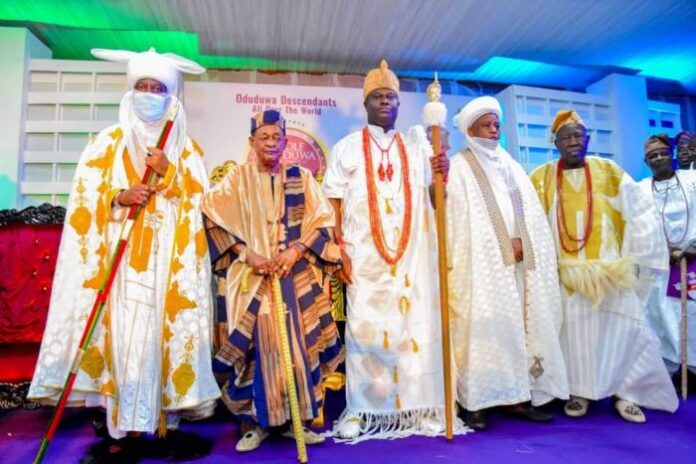In Nigeria, traditional rulers have long held a revered position, serving as custodians of culture and arbiters of local disputes. However, recent events suggest that these esteemed figures are increasingly becoming pawns in the hands of politicians, raising concerns about the erosion of their cultural authority and independence.
The relationship between traditional rulers and politicians is not new. Historically, rulers have wielded significant influence, often collaborating with political leaders to maintain order and stability. But today, this collaboration is taking on a more insidious form, with politicians leveraging traditional rulers to secure political support and consolidate power.
One striking example is the recent reinstatement of Emir Muhammad Sanusi II by Kano State Governor Abba Yusuf, despite a Federal High Court order restraining such action. The move sparked outrage among various factions, with some accusing the governor of using the emirate for political gain. Northern Lawyers’ Forum swiftly issued a 48-hour ultimatum to the governor to reverse the decision, branding it unconstitutional and a mockery of the judiciary.
The situation in Kano is not isolated. Across Nigeria, traditional rulers are often seen endorsing political candidates, participating in government-sponsored events, and even receiving political appointments. This intertwining of traditional authority and political ambition raises critical questions about the independence of these rulers and their ability to serve their communities impartially.
Critics argue that politicians’ manipulation of traditional rulers undermines the latter’s authority and compromises their role as neutral arbiters. When traditional leaders become entangled in political machinations, they risk losing the respect and trust of their people, who may perceive them as mere extensions of political power rather than as protectors of cultural heritage.
The financial incentives provided by politicians further complicate this relationship. Many traditional rulers receive significant financial support from state governments, which can lead to a dependency that erodes their autonomy. This financial entanglement often pressures rulers to align with the political agendas of their benefactors, further blurring the lines between cultural leadership and political influence.
Moreover, the political exploitation of traditional rulers can stoke tensions within communities. When a ruler endorses a particular political faction, it can polarize their constituency, leading to divisions and conflicts that disrupt social harmony. This is particularly concerning in Nigeria’s diverse and multi-ethnic society, where traditional rulers play a crucial role in fostering unity and cohesion.
Despite these challenges, some traditional rulers are pushing back against political manipulation. They advocate for greater independence and emphasize their commitment to serving their communities above political interests. These leaders are calling for reforms to protect their autonomy, such as legislation that limits political interference and ensures financial independence.
The Nigerian public also has a role to play in addressing this issue. By holding both politicians and traditional rulers accountable, citizens can help preserve the integrity of traditional institutions. Civil society organizations and the media can amplify voices calling for reform and highlight instances of political exploitation.
As Nigeria continues to navigate its complex political landscape, the need to safeguard the independence and cultural authority of traditional rulers has never been more urgent. Ensuring that these leaders can serve their communities free from political manipulation is essential for maintaining social cohesion and preserving the rich cultural heritage that they embody. The balance between tradition and modernity hinges on the ability of traditional rulers to remain impartial and dedicated to the welfare of their people, rather than becoming instruments of political power.




